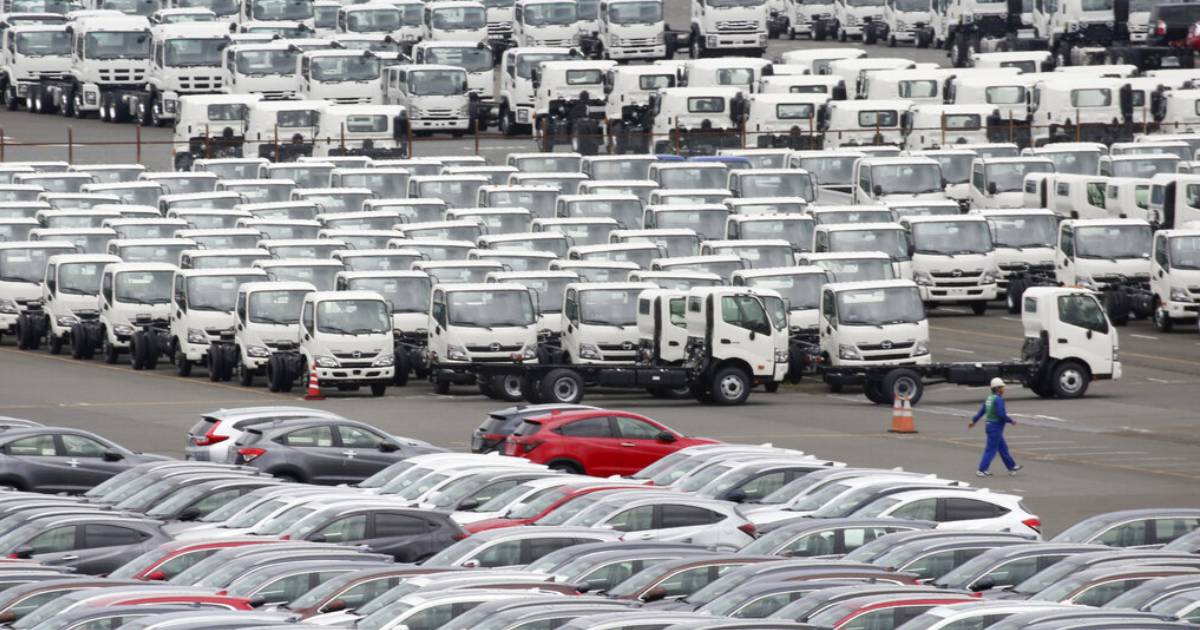
Photo: In this July 8, 2019, photo, cars wait to be exported at Yokohama port, near Tokyo.
Japan logged a deficit for a second straight year last year as its exports were hurt by a slowdown of demand in China amid a tariff war with the U.S.
Government data released Thursday showed Japan’s exports fell 5.6% in 2019, to 76.9 trillion yen ($701.6 billion), while imports fell 5.0% to 78.6 trillion yen ($710 billion). That left a deficit of 1.6 trillion yen ($14 billion).
Japan had a trade surplus of 6.6 trillion yen ($60 billion) with the U.S. last year, as exports fell 1.4% from 2018, and imports fell 4.4%. Shipments of computers, construction and textiles equipment and power generating machines contributed to a 3.7% increase in exports of machinery to the U.S. Vehicle exports, which account for nearly 40% of Japanese exports to the U.S., declined 5.5%, the data show.
Exports and most imports from around the world also declined amid a global slowdown. Exports to China dropped nearly 8%, matching the drop in exports to all of the rest of Asia.
In December, exports continued to fall, but at a slower pace than the month before, dropping 6.3%, while imports slipped nearly 5%.
“Looking ahead, we think the recovery in exports will be weaker than many expect. That reflects our view that GDP growth in Japan’s main trading partners will remain subdued this year,” Tom Learmouth of Capital Economics said in a report.
He noted that an increase in Japan’s sales tax, to 10% from 8%, as of Oct. 1 has also hurt consumer demand and private investment.
Japan’s exports of cars and other vehicles, which constitute nearly a quarter of all its exports, fell 4%, while exports of electrical machinery dropped 6.6% . Its imports of gas, oil and other fuels fell 12% as prices declined from a year earlier.
President Donald Trump has thrown out past trade deals, including that with China, that he said added to the U.S. trade deficit and cost the country manufacturing jobs.
 Weekly Bangla Mirror | Bangla Mirror, Bangladeshi news in UK, bangla mirror news
Weekly Bangla Mirror | Bangla Mirror, Bangladeshi news in UK, bangla mirror news







